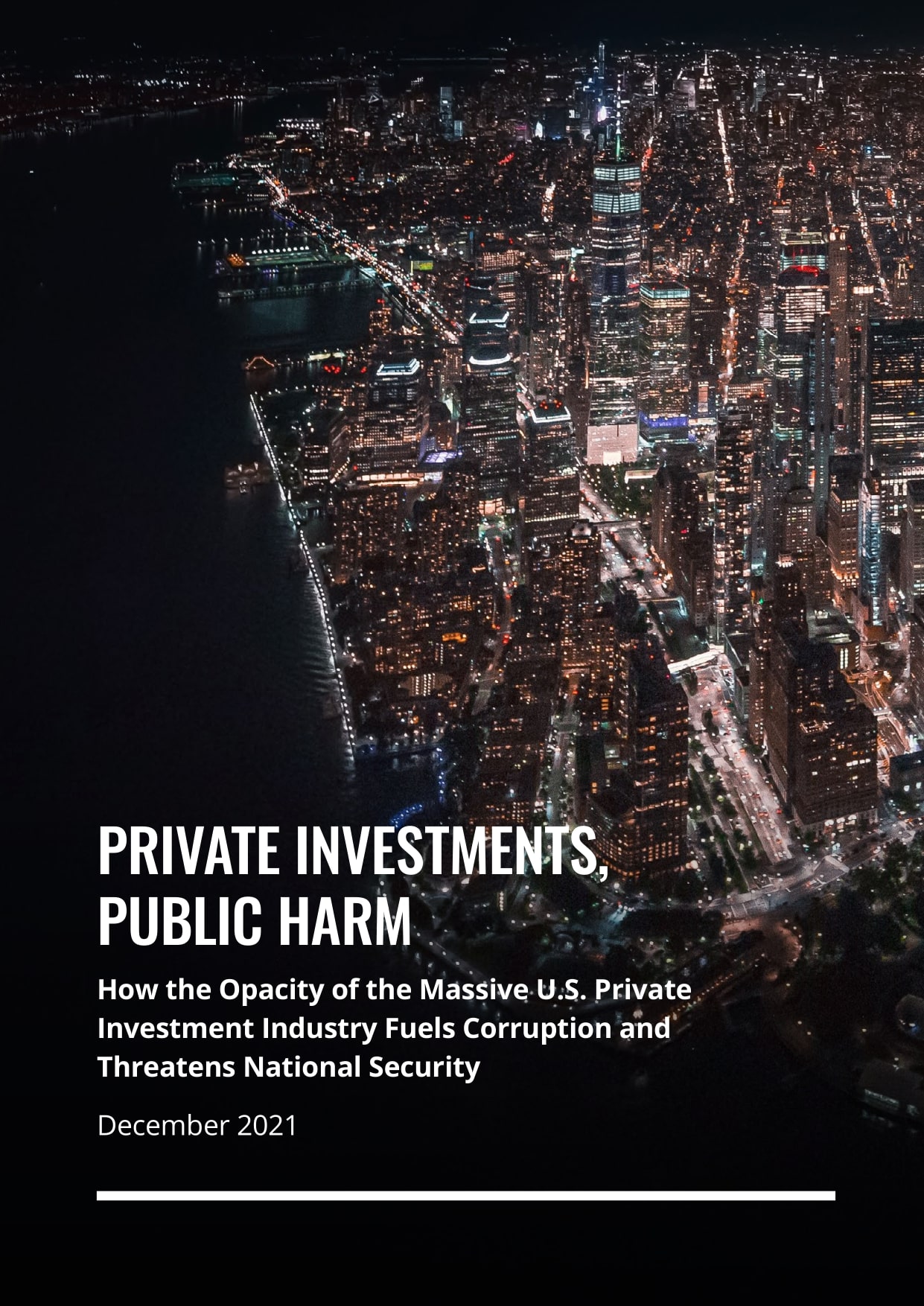In a joint report – “Private Investments, Public Harm: How the Opacity of the Massive U.S. Private Investment Industry Fuels Corruption and Threatens National Security” – the FACT Coalition, Global Financial Integrity, and Transparency International’s US Office explore a gaping hole in the U.S. anti-money laundering framework that undermines U.S. national security, jeopardizes the world’s democracies, and touches the lives of ordinary Americans.
This report comes not long after the Pandora Papers have again exposed how U.S. financial secrecy makes the country a magnet for the world’s illicit finance. The U.S. private investment industry, unfortunately, offers a perfect confluence of factors that make it an ideal place to hide and launder the proceeds of corrupt and criminal activity.
- It is large. The U.S. market alone holds more than US$11 trillion dollars in assets.
- It is opaque. Private funds, which target high-net worth investors, do not have the same reporting requirements as public equity and retail funds marketed for ordinary investors.
- It is complex. In the United States, there are nearly 13,000 investment advisers with little to no anti-money laundering due diligence responsibilities.
Though U.S. policymakers have tried before to bring the private investment industry – private equity, hedge funds, and others – under the purview of U.S. anti-money laundering regulations, the recent revelations of a leaked 2020 FBI memo and the new elevation of anti-corruption as a core U.S. national security interest demand further action by the current administration to inject greater transparency into a more than $11 trillion industry.

